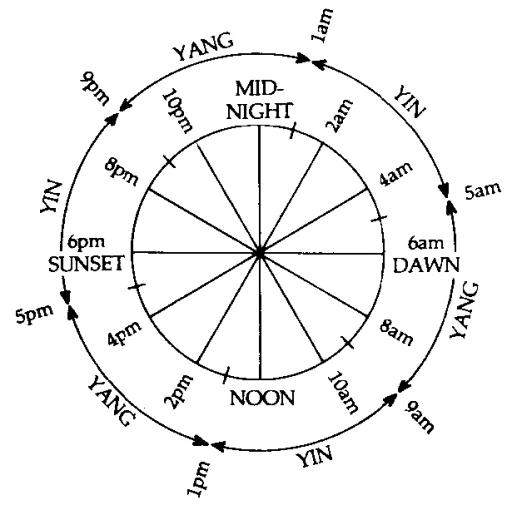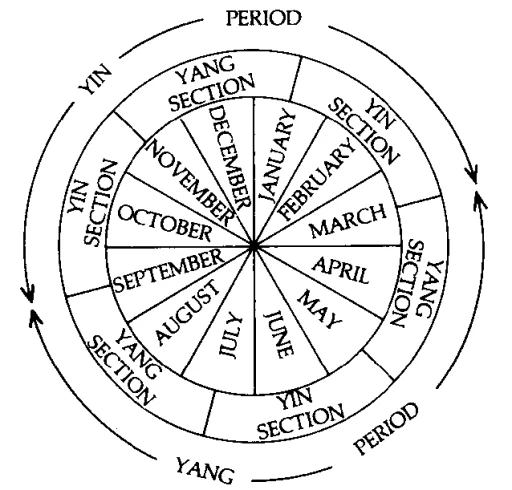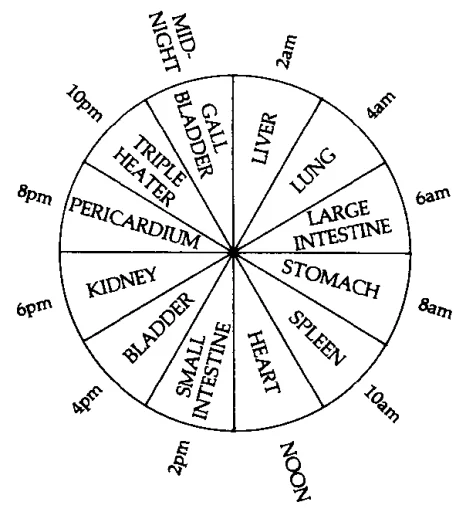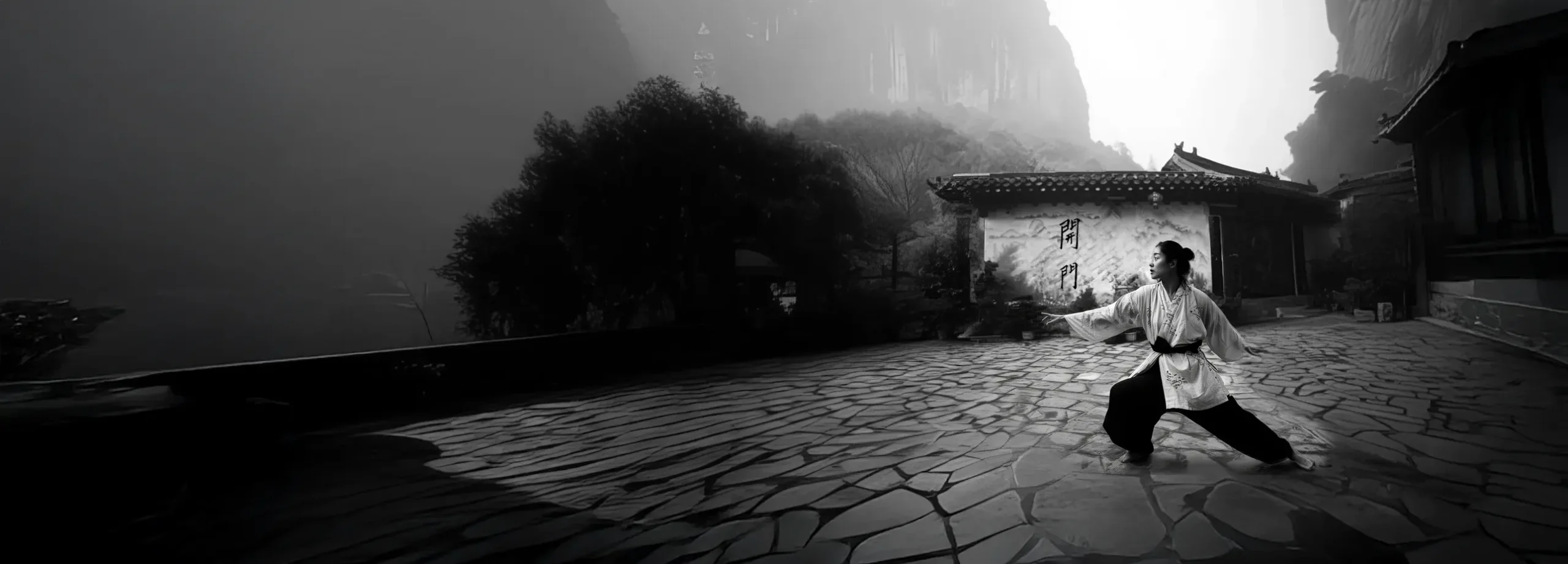Everyone who is prepared to practise hard and diligently, and who has the mind to aim for the highest level, needs a helping hand and a few guidelines to help him along the way. The stresses and strains of work and home life, bringing up families, and the burdens that we all carry each day slowly sap our energy, and cause the body to run down, so that we do not always feel that we have the energy to carry on. Anger, jealousy, depression, worry and other emotions may put the mind under constant stress, making it very difficult to concentrate and think clearly.
To avoid this, the emotions must be brought under control, so that your response to events and to others remains on a constant level. This is hard to achieve, but once you have the strength of mind to get yourself under control every minute of every day, you will find life takes on a new dimension and a completely different aspect. There will be such peace, harmony and happiness within you that you may think a miracle has happened. But miracles don’t happen, for it is the natural flow of nature and should be an every day occurrence, and we should learn to accept it as such, for this is the Tao.
Sleep
No one should ever sleep too much, because this can make the body become earthbound, and feel very heavy and sluggish. Anyone who is really healthy, especially someone who for at least three years has cultivated Ch’ang Ming eating and drinking habits, needs only five to six hours sleep every night, irrespective of the type of work he does.
Make sure that you always sleep with the window open, so that there is always fresh air available in your bedroom. To avoid draughts, have only one window open at a time, and keep the door closed.
Do not have a bed too soft. A firm bed is much better for comfort and will help you to sleep more relaxed. If the bed sags, your body can be caused unnecessary strain, even though you are trying to relax. There is an old saying that “One hour’s sleep before midnight is worth two hours’ afterwards”, and this is absolutely true. This is because after midnight the heart, small intestine, bladder, and kidneys are at their lowest ebb, the body temperature drops, breathing slows, and these organs work more slowly, so that they too can rest. As you can see from the following diagram which depicts the Yin and Yang aspects of a normal day, the early hours of the morning is also a Yin period:

If you dream or have nightmares, or if you awaken during the night, then it is very likely that you will find that it is between 1 a.m. and 5 a.m.; so, it is vital to get as much sleep as possible before 1 a.m. for good health and complete relaxation and thereby ensuring that your body gets the maximum benefit from the rest.
Vitality
In China it has been known for thousands of years that the
organs, blood, mind, spirit, body, our psychic spheres, and our energies, indeed, all living things in the universe move through regular cycles of minimum and maximum activity. The annual cycle is as follows:

So everyone is at their lowest ebb in December, and at maximum vitality in June, but individuals vary slightly depending on when they were born, but such variation will not exceed three weeks. There are also monthly and daily vitality cycles.
The following diagram shows the times of the day at which the principal organs of the body are at their peak condition. These times are calculated with reference to the “lines of meridian” of the human body, and which are used in most Chinese healing

arts such as the Eight Strands of the Brocade, which includes spot pressing, vibration healing, Ch’i healing, Li healing, push and pull massage, sound healing, as well as being used extensively in acupuncture.
So if you have heart trouble get to bed before 11 p.m., and if you have lung trouble don’t do anything really active between 3 and 5 p.m.
Relaxation
If you live the Ch’ang Ming way you will not feel tired or fatigued, and thus will be unlikely to fall ill, for tiredness is one of the basic causes of illness. However, if you feel at all tense at anytime, sit quietly, with your back upright (do not slump down in an armchair!), and relax your mind and your whole body. Close your eyes if this helps, and try to erase the sounds that come into your ears and mind. Try a few deep breathing exercises, such as the ‘Tin breath”, described in Chapter 5. This will help you to relax and at the same time will increase the oxygen in your bloodstream.
Tensions can also be reduced by taking a shower or bath before practising K’ai Men, and you will benefit too by taking one afterwards. If your eyes are heavy or you have a slight headache, lie on the floor, with your tongue in the roof of the mouth, and breathe deeply through the lower abdomen (Tan T’ien). At the same time place your right hand on your eyes between your two eyebrows, making sure that the palm of your hand is in complete contact with your skin and eyelids, and with your left hand gently press on the floor with your fingertips, in a rhythm very similar to your own pulse. Do this for about one minute and you will be surprised how wonderful you feel afterwards.
Food
The advantages of eating the Ch’ang Ming way have already been emphasized (see Chapter 4). Try it for six months, and you will be surprised how fit and alive you feel, how well you look, and in what good condition your skin is.
However, it is advisable never to eat just before practice, and after a very heavy meal you must allow at least three to four hours to go by before you attempt the exercises of K’ai Men. When you do eat, always chew each mouthful fifty to a hundred times, so that it turns to water before swallowing. This will ensure that you do not overload the stomach and that you never suffer from indigestion and ulcers.
Time and Place of Practice
You can practise anywhere at any time of the day, but the ideal times are one hour after sunrise and one hour before sunset. Because of work commitments, however, you may find it best to practise in the evenings; but do try to practise at a regular time. K’ai Men exercises are such that you can do just a few at a time, so a practice session need last no longer than fifteen to twenty minutes.
Whenever you practise, make sure that the room in which you do so is clean and airy, without any draughts, and that the atmosphere is not cold or damp. You can even practise on bare floorboards, providing that the floor is even, so that when you lie on your back your spinal column is not rubbing against a knot in the woodwork. The ideal place to practise is on a carpet in a room with one window open.
Clothing
This should be loose, so that you can bend and turn your body without the slightest restriction. The best clothing to wear for K’ai Men practice was developed in China over 5,000 years ago, and is ideal for all callisthenics, no matter how strenuous the movements may be.
Breathing
This has already been covered in detail in Chapter 5. Suffice it to say here that deep breathing is essential.
In addition, learn to savour the golden nectar of your own body by keeping your tongue in the roof of your mouth all the time. As your mouth fills up with saliva, gently lift the chin, and swallow smoothly at one go. Get in the habit of doing this and you will be surprised at how beneficial it is.
Mind
In everything that you try to do, concentrate fully at all times and learn to feel everything that goes on inside your own body. Learn also to concentrate on things and people around you.
Through concentration, and attention to even the smallest thing that happens, you will eventually learn to see the Tao all around you constantly, and you will begin to see and appreciate the path of your life.
This concentration will not only help you to strengthen your mind, and improve your memory, but also give you a very peaceful and tranquil outlook, because concentration will stop you worrying unnecessarily about incidentals.
The mental processes affect the emotions, and thus conscious control of the mind and its thoughts will induce a feeling of calmness, to the benefit of your mental and physical health and even of your subconscious mind, which will thereby become more relaxed. This in turn will see that you dream less and sleep more deeply. Concentration of your mental faculties will not only give you added inner power, but also give you an inner peace, which you may find remarkable.
In addition to all this, you will find your memory will get better and better, which it should do, for memory is based on experience in time, and as you get older your experience is greater, and therefore your memory should increase with your years.
Bowels
Ensure that you empty the bowels and the bladder before you start your K’ai Men practice, because inner cleanliness is absolutely vital to your good health, and if you retain such waste matter within your system you may find that when you practise some of the exercises you feel restricted, which in turn could create a certain amount of tension. In addition, the effect of having waste matter in the body for long periods will be to reduce the purity of the blood, causing headaches and sluggishness.
Make sure that you go to the toilet regularly and try to cultivate a habit of going first thing each morning. This will clear the toxic matters that have accumulated in the body during the period you have been asleep.
Menstruation
During menstruation it is best not to practise exercises in which the legs have to be in the air, or in which the body is bent
forwards. Exercises in which the body is kept upright are best at such times.
Menopause
For most women the menopause is a difficult time, marked by nervousness and periods of depression. Ch’ang Ming and dedicated practice of K’ai Men are the best answers, since they keep the body healthy and the mind calm and relaxed, so that the change is scarcely apparent and is easily accepted.
Exercising
K’ai Men can be practised by anyone who will take the very little trouble required to do so. We suggest that, if you are a beginner and have never done physical exercises before, for the first month of practice you should keep to just the sequences of each exercise, practising regularly every day. The body will then become soft and relaxed, and you will be able to progress to the extensions of the exercises.
Happiness
The man of the Tao is free from anger, hate, fear, and worry at all times, and if you live the Ch’ang Ming way as well then illness and suffering will not exist for you. You will be happy and pleasant all the time, and your appearance, your behaviour and your manners will radiate this happiness, pleasure, and relaxed air that you will have about you all the time. It will catch on, and others may ask you for the secret. When you tell them that it is no secret, but the natural way of life, and that you now recognize your predestined path, they will either want to join you in this knowledge, or secretly laugh behind your back. If they want to laugh, let them, for they are the ones losing out, not you, for you have attained an understanding of life and of nature, and of the universe that will be the envy of everyone. Do, however, try to pass on your understanding to others, so that all may benefit by the wonderful work of the Supreme Spirit.
We exist in this world with many, so let us try to help many on the way.
